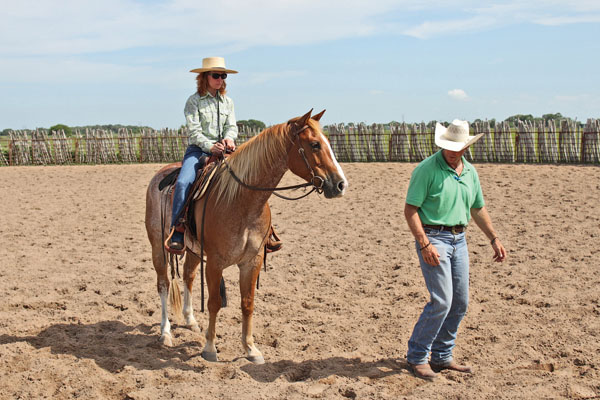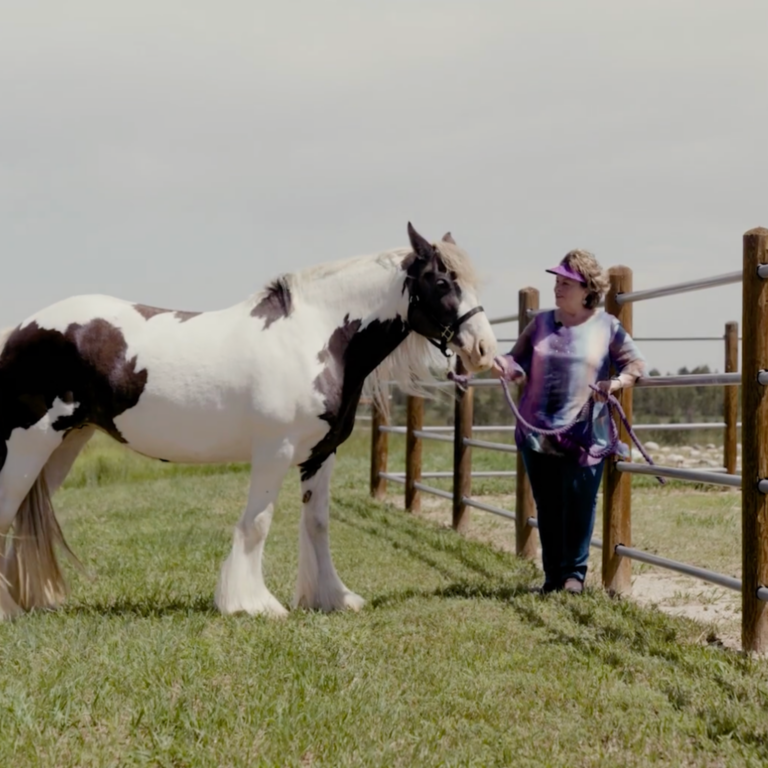When I work with riders seeking to become more confident, I ask them first to change their thinking. “Don’t fuss over all the things you’re afraid to do,” I tell them. “Instead, zero in on what you can do, and build from there—slowly.” Here’s how.

Find your focus. If you rode horses as a child, you probably remember that great feeling of galloping along with the wind blowing through your hair. But don’t focus on that now. Instead, find the place where you feel completely comfortable, and proceed from there, using the basics as your building blocks. Are you comfortable jogging around the arena? Then use that time to learn how your various rein and leg cues control the various parts of your horse’s body. The more control you gain over your horse’s nose, neck, shoulders, and hips, the more control you’ll have over his behavior. The more control you have of his behavior, the more confident you’ll feel overall.
Go slowly. Progress methodically as you move toward your ultimate goal. Remember what it was like when you were first learning to drive a car? You had to consciously focus on each separate action—steering, accelerating, using the brake—and that required you to drive quite slowly. Eventually, each part became almost automatic, and you could drive down the road with ease, listening to the radio as you went. Give yourself time to learn all the basics of horsemanship until much of it becomes “unconscious.”
Use a ‘pilot check.’ Each time you begin a ride, take a moment to check that everything’s right. Saddle feels secure, reins adjusted to the right length? As you check your equipment, also check your horse’s responsiveness. Pick up the right rein and see if he softens his jaw in response. Do all this before you ask him to take a single step, as this sets the you’re-in-charge tone of the ride.
Ask questions. Now, take a deep breath and ask yourself four key questions. First, what do you want from your horse? Don’t be vague (“a leisurely ride”). Be specific (“step off calmly and walk willingly forward on a loose rein”).
Second, is what you’re asking something he’s able to do? If today you want to work on a collected jog but you haven’t yet worked on getting him to soften his poll to your hand, then you’re going to need to fill in that missing step before you proceed. Work on whatever is the next logical thing.
Third, can you ask him in a way he’ll understand? If you want him to turn to the right on his hind end, do you know how to communicate that to him? Do you know what your posture should be, and how to use your reins and legs? You need to be capable of communicating your desire clearly.
Fourth, what level of performance will be satisfactory? Initially, any level of “try” should be “perfect for now.” But as you and your horse progress, you need to seek constant improvement.
Over time, asking these four questions will become automatic and almost unconscious for you. In the meantime, having them to focus on will bolster your confidence.
Van Hargis has trained and competed in events ranging from reining to calf roping. That background plus extensive ranch experience inform the basics-founded horsemanship program he presents at clinics and horse expos and from his home base in Victoria, Texas (vanhargis.com).







